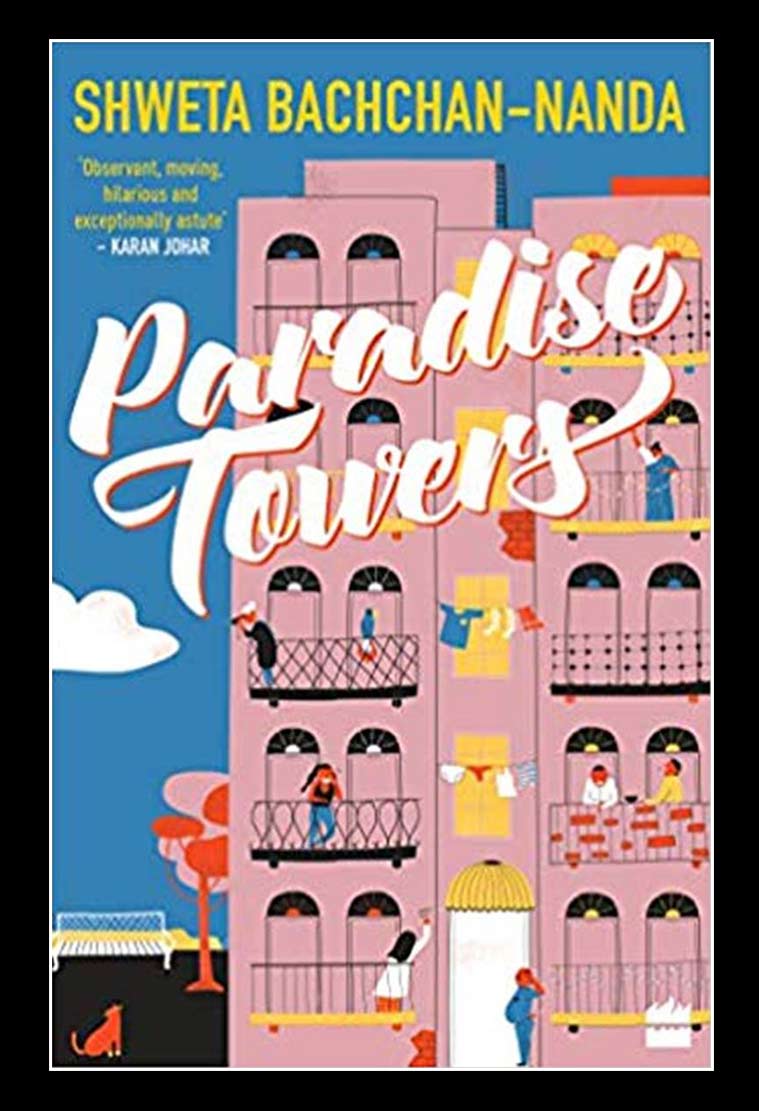Paradise Towers review: In search of a plot
Set in Mumbai, Shweta Bachchan-Nanda's debut novel shares its name with a building in the city. Paradise Towers, by the author’s own admission, not only stands as an anachronistic edifice among the skyscrapers, but also has a name that is dripping with irony.

Well-constructed sentences and multiple storylines can’t save Shweta Bachchan-Nanda’s new novel. (Source: Amazon.in/File Photo)
Stereotypes serve several purposes. They can mislead readers, they can enhance the plot. They can also be played with, and even turned on their heads, to further the narrative. Shweta Bachchan-Nanda in her debut novel, Paradise Towers does nothing of this sort. Instead, she uses these stereotypes as plot points, using them for one purpose — convenience.
Set in Mumbai, the novel shares its name with a building in the city and Bachchan-Nanda’s novel is about its residents. Paradise Towers, by the author’s own admission, not only stands as an anachronistic edifice among the skyscrapers, but also has a name that is dripping with irony. It is anything but idyllic and its characters are hardly pious. They shamelessly eavesdrop, and tell on each other with terrible consequences as secrets spill out from the windows.
The author colours her narrative by introducing characters from diverse cultures, but this very detail also highlights her creative limitations. With frustrating obstinance, Bachchan-Nanda’s characters stick to all the stereotypes associated with them. The Bengali man is too timid and meek for his overbearing wife, while their daughter spends her days poring over books, taking little or no interest in others, including the boy who is visibly smitten by her. She wears glasses, of course, and leaves people in awe the day she decides to drape a sari (and give her spectacles a miss). The Punjabi couple likes their drinks and sees to it that others have a glass in their hands while they are nursing their own. The only love affair in Paradise Towers is that of a Muslim girl with a Hindu boy. A lone widow spends her afternoons, standing by her balcony and keeping a surreptitious watch on the building and its residents by training her binoculars on them. What else do old people do during solitary afternoons?
It does not help either that there is little or nothing when it comes to a semblance of a plot. The author packs in far too many things — some insipid, some critical — and treats each one of these plot angles with equal insouciance. Notwithstanding how urgent or pressing the incident is, it is resolved in the span of a few pages. Even a murder.
This, however, is a pity because Bachchan-Nanda’s sentences sit nicely, they even read well. There is a marked elegance in the turn of her words and she seems visibly comfortable in the presence of the characters she has created. Although mired in inanity, the narrative soars when she chooses to gaze on the details and write about them. Nothing escapes her attention — a slant of hand, a sleeping child at a crowded party or a young, absent-minded masseuse who waits to forward Whatsapp messages moments after her patron begins snoring.
It is also refreshing that she does not try too hard. The narrative is not orchestrated to arrive at a punchline, neither are there sentences placed in every chapter to jolt the readers. Her narrative flows, to borrow her words, “just like that”, which both works for and against her.
“Do you know the whole story?”, a character asks in the novel. “Yes, of course. You don’t?” she is asked in reply. “Na, not really,” she says. After turning the last page, one does identify with the girl’s apparent befuddlement about not knowing the “whole story”. The omniscient narrator in Paradise Towers might be extremely attentive, but sadly gets bogged down by the details and loses the plot midway. The novel, for all its elegance, ultimately, reads like it has a bunch of characters who are in search of a plot.






















 Paradise Towers is Shweta Bachchan-Nanda’s debut novel.
Paradise Towers is Shweta Bachchan-Nanda’s debut novel.
No hay comentarios:
Publicar un comentario